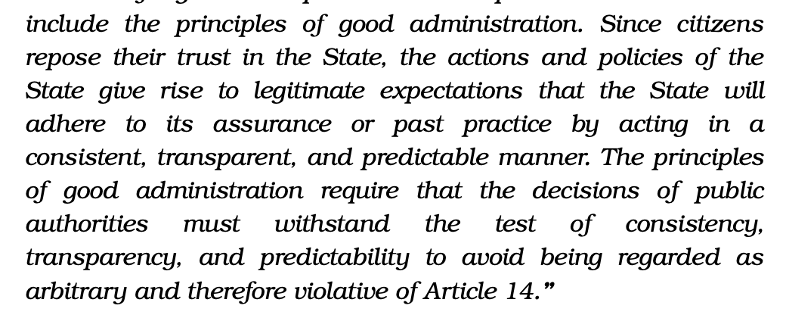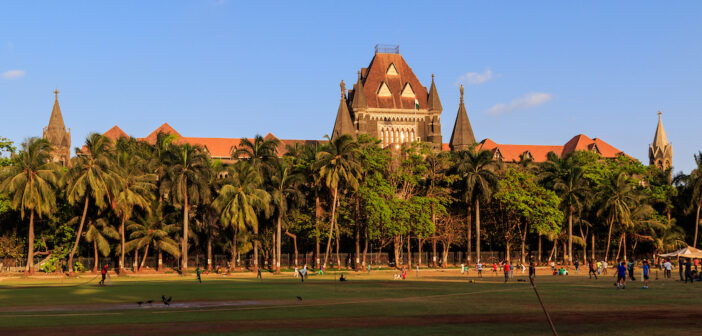In this edition of court judgements review, we shall look into Supreme Court’s judgement scrapping recruitment process midway, NGT’s power to direct PMLA probe, Madras High Court’s judgement on maintenance if wife has considerable assets, Allahabad High Court’s judgement on non-void of marriage if registration not performed, Bombay High Court’s judgement on ‘accident’ under Motor Vehicles Act, 1988.
Supreme Court: Statutory recruitment processes must resist arbitrary executive interference to uphold the principles of consistency and predictability.
In Partha Das & Ors. vs. The State of Tripura & Ors., the Supreme Court ruled that recruitment procedures governed by statutory provisions cannot be subject to arbitrary state intervention via executive directives, as such interference must conform to principles of consistency and predictability that form the foundation of the rule of law and prevent administrative arbitrariness.
The appellants participated in recruitment for the post of Enrolled Followers in the Tripura State Rifles, governed by the TSR Act, 1983 and TSR Rules, 1984. The process had reached the stage of preparation of merit lists and character verification when a change in government led to the issuance of an Abeyance Memorandum (14 March 2018) and subsequently a Cancellation Memorandum (20 August 2018). These orders halted the ongoing recruitment in order to implement the New Recruitment Policy (NRP), which abolished interviews for Group-D posts.
The appellants argued that the process under the TSR Act/Rules had been substantially completed, giving them a legitimate expectation of appointment. They contended that executive orders (NRP) could not override statutory rules and that changing procedure midway was arbitrary. The State countered that no indefeasible right accrued until final appointments. The NRP was introduced to ensure transparency and fairness, and applied prospectively to all ongoing recruitments, including this one.
Upon hearing both parties, the Supreme Court held that executive instructions cannot override statutory rules. Applying the NRP after interviews and merit list preparation amounted to altering the process after commencement. The State failed to show how the cancellation served the larger public interest. Candidates, having undergone prescribed tests, had a legitimate expectation of a fair and consistent process.

The Court allowed the appeals, set aside the High Court judgment, and quashed the Abeyance and Cancellation Memorandums. It directed the State to complete the recruitment process for Enrolled Followers under the TSR Act and TSR Rules within two months.
Supreme Court: NGT does not have the jurisdiction to direct the prosecution of individuals under the PMLA.
The Supreme Court, in M/s. C.L. Gupta Export Ltd. vs. Adil Ansari & Ors. held that NGT should act within the contours of the powers conferred on it, which is Section 15 of the NGT Act of 2010, and it does not have the jurisdiction to direct the prosecution of individuals under the PMLA.
Respondent no.1 approached the NGT alleging that C.L. Gupta Export Ltd. was causing environmental degradation by polluting air, water, and illegally extracting groundwater. Reports from Joint Committees revealed violations like ineffective effluent treatment, hazardous waste mismanagement, and unauthorised units. Though the company later achieved compliance, the NGT imposed an environmental compensation of ₹50 crores based on turnover, ordered the closure of defaulting units, and directed the ED to act under the PMLA.
The appellant argued it had paid statutory compensation and achieved compliance. The imposition of ₹50 crores lacked legal basis and contravened Benzo Chem Industrial (P) Ltd. vs. Arvind Mahajan. Directions invoking PMLA were beyond NGT’s jurisdiction (Waris Chemicals (P) Ltd. vs. UPPCB; Vijay Madanlal Choudhary vs. Union of India). The PCB argued that a penalty could serve as a deterrent and supported structural directions for monitoring and restoration.
The Court noted compliance had been reported in 2021. It held that the penalty based on turnover had no rational nexus to environmental harm, reaffirming Benzo Chem Industrial (P) Ltd.. It struck down NGT’s reliance on PMLA, observing that jurisdiction lies only with courts under PMLA (Waris Chemicals). Closure orders were unwarranted once compliance was established, though continuous monitoring and restoration measures were upheld.
The Supreme Court allowed the appeal, quashing NGT’s ₹50 crore penalty, closure orders, and ED reference. However, it upheld ongoing monitoring and environmental restoration measures, cautioning tribunals against excessive rhetoric and emphasising judicious, fact-based adjudication.
Madras High Court: Interim maintenance not needed for wife holding immovable properties and has substantial income
The Madras High Court, in ABC vs. XYZ, ruled that the object of Section 24 is only for providing interim maintenance to the wife to enable her to get sufficient income to live a comfortable lifestyle and a wife holding immovable properties, as well as the substantial income, does not entitle her to interim maintenance.
The petitioner-husband filed for divorce. The respondent-wife sought interim maintenance under Section 24, Hindu Marriage Act,1955 for herself and their son, Anirudh. The Family Court ordered ₹30,000 per month each for the wife and son and directed the husband to pay NEET coaching fees (~₹2.77 lakhs). The husband accepted maintenance and educational expenses for the son, but challenged maintenance for the wife.
The husband argued that the wife was financially affluent, receiving substantial dividends as Director of Roentgen Scan World Pvt. Ltd., owning valuable properties, and even manipulating ownership transfers during proceedings. He contended Section 24 was meant for sustenance, not enrichment.
The wife argued that the dividends were spent on their son’s education, her disclosed assets were genuine, and she had no regular independent income. She relied on Shailja vs. Kobbanna and Rajnesh vs. Neha, which emphasise maintaining a wife’s standard of living.
The Court noted the wife had received over ₹15–16 lakhs annually in dividends for three consecutive years and owned immovable property. It found her explanation for property transfers unconvincing and held she already had sufficient means to sustain herself.
The High Court partly allowed the revision, setting aside the Family Court’s award of ₹30,000 interim maintenance to the wife. Maintenance of ₹30,000 for the son and educational expenses remained unchallenged and payable.
Allahabad High Court: Absence of registration of marriage will not invalidate the marriage.
The Allahabad High Court, in Sunil Dubey vs. Minakshi, held that merely because a marriage has not been registered under the Hindu Marriage Act, 1955, it does not follow that, in fact marriage has not taken place. A registration certificate is only evidence to prove the marriage, and the absence of registration of the marriage will not invalidate the marriage.
The petitioner-husband and respondent-wife jointly filed for divorce by mutual consent under Section 13(B), Hindu Marriage Act, 1955. The Family Court, Azamgarh, insisted on filing a marriage registration certificate under Rule 3(a) of the Hindu Marriage and Divorce Rules, 1956. The husband’s application to waive this requirement (as their marriage, solemnised in 2010, was unregistered) was rejected, prompting this petition.
The petitioner argued that Section 8 of the Act, 1955 and the UP Marriage Registration Rules, 2017 make registration evidentiary, not mandatory, and marriages remain valid without registration. The respondent raised no objection.
The Court reviewed precedents, including Seema vs. Ashwani Kumar (2006), Dolly Rani vs. Manish Kumar Chanchal (2024), and others, reiterating that registration is only proof of marriage, not its validity. Rule 3(a), 1956 applies only where marriages are registered; otherwise, its insistence is unwarranted.

The High Court set aside the Family Court order, holding that the absence of registration does not invalidate marriage, and directed expeditious disposal of the pending divorce petition.
Bombay High Court: ‘Accident’ does not necessarily need another vehicle involvement; it can include overturning, slipping, etc.
The Bombay High Court, in Aditya Ramchandra Patil vs. Yuvraj Bhivaji Patil, held that it is not necessary to have the involvement of another vehicle to cause an accident for motor vehicle compensation claims.
The deceased, while travelling with her husband and two minor sons on a motorcycle, died after her saree got entangled in the rear wheel, causing the bike to skid. The Motor Accident Claims Tribunal (MACT), Kolhapur, dismissed the family’s claim, holding there was no “accident” since no other vehicle was involved and attributing negligence to the husband.
The appellants argued it was an accidental death during motorcycle use, covered under the insurance policy, and the deceased earned ~₹4,000/month from the milk business. The Insurance Company contended that carrying four persons breached policy terms, and no third-party vehicle was involved.
The High Court held that “accident” under the Motor Vehicles Act, 1988 includes collision, overturning, or slipping; the involvement of another vehicle is not necessary. The deceased’s death due to saree entanglement was thus an accident. Breach of policy terms was not made out since the additional riders were two minor children.
The appeal is allowed. The Court enhanced compensation to ₹8,32,800 (net increase of ₹7,82,800) with 7.5% interest, payable by the insurer within eight weeks.



